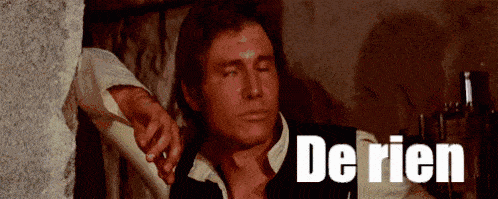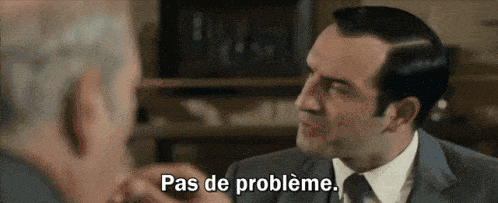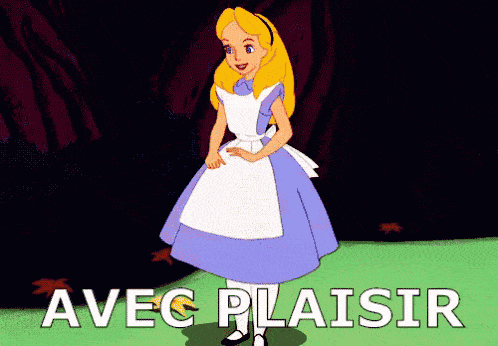You most likely know that “merci” or “merci beaucoup” are the ways to say thank you in French, but how about “you’re welcome” in French? There are a couple of ways to say you are welcome, as it depends on the situation, or the people involved. In this article, we will discuss formal/informal ways and various ways to say you’re welcome in French depending on the country you are in. We have other articles like this in different languages, such as; you’re welcome in Spanish.
Ways to Say “You’re Welcome in French”
1. The Most Common Way: “De rien”
The most common way to say “you’re welcome in French” is De rien. This phrase is generally considered an informal/casual way and the most basic form of response. It is mainly used for people with whom we have some form of relationship; people such as family, friends, coworkers, school mates. However, one must be careful to not use “De rien” for people that are older or in formal settings.

The literal translation of “De rien”
Although it is not important to worry much about the literal translation of this phrase, it can further help us know how and when to use it. The literal translation of “De rien” is “of nothing”. This is similar to saying “no problem” or “don’t worry about it” in English.
Merci d’avoir aidé mon cousin (Thanks for helping my cousin)
De rien (You’re welcome)
Merci d’avoir parlé en notre nom (Thank you for speaking out on our behalf)
Cést bon, de rien (Its fine, you are welcome)
2. The Formal Way: “Je vous en prie”
The most formal and proper way to say you’re welcome in French is “Je vous en prie”. The pronoun is “vous”, as this is the right pronoun to use for people in business or formal gatherings, strangers, adults, more than one person, or people that we only have a formal relationship with.

The literal translation of “Je vous en prie”
Again, the literal translation of “Je vous en prie” is “I pray you it”. The important thing to remember here is not the literal translation, but when exactly you should use “vous” instead of “tu”(less informal way) which we will cover next.
Merci pour un travail bien fait (Thanks for a job well done have )
Je vous en prie professeur Khan (You’re welcome Professor Khan)
J’ai compris l’itinéraire, merci (I have understand the route, thank you)
Je vous en prie (You’re welcome)
3. The Less-formal Way: “Je t’en prie”
This way of saying “you’re welcome” in French is common among friends and family, and people you share cordial relationships with. As it is considered informal, to an extent. The most appropriate time to use is if you want to be polite or need to respond to someone expressing a higher level of gratitude. Such as; if you got them an expensive gift, or did a tremendous task for them. Also, this phrase is quite similar to the formal way “Je vous en prie”, only that you should use it for people you address with “tu”, such as; friends, family members, or children, so we can say “je t’en prie” is a semi-formal way of saying “you’re welcome” in French.

The literal translation of “je t’en prie”
Literally “je t’en prie” means “I pray you it”, and as you can see it does not in any way relate to what it is being used for. You can think of this literal translation like French idioms and proverbs which literal translations are not enough to explain their meaning.
J’adore le cadeau, merci beaucoup (I love the gift, thank you so much)
Je t’en prie (You’re welcome)
Je ne pouvais pas le croire. Merci beaucoup (I couldn’t believe you did. Thanks a lot)
Je t’en prie (You’re welcome)
4. The Easiest to Remember Way: “Pas de probleme”
We all know that learning easy words is one of the best ways to learn french. The word ‘problème’ in this French expression resembles its English meaning “problem”. You will use the phrase “Pas de probleme” to reassure the person you helped, that your kind gesture towards them was not in any way an inconvenience.

The literal translation of “Pas de probleme”
This is the only phrase that is meaningful when translated literally! “Pas de problème” is directly translated as “no problem”.
Merci de m’avoir attendu. Le train est arrivé en retard (Thanks for waiting for me. The train arrived late)
Pas de problème. (No problem)
Merci de m’avoir aidé tout à l’heure! (Thanks for helping me just now!)
Pas de problème, vraiment! (No problem at all!)
Locational Variations
French is not a language spoken only on the streets of Paris. The language is spoken around the world, and each region has its unique accent and expression. So expectedly, some phrases you hear in a country may differ from what you are used to in another environment. Just like Spanish; there are about 10 different variations of the language. Saying “you’re welcome” in French also varies from one location to another, especially in the Canadian province of Québec, Switzerland, and even in Southern France regions such as Toulouse, so you have to choose which phrase to use depending on your proximity to these communities.
-
Southern French variation: “Avec plaisir”

A common phrase to respond to someone’s appreciation is “Avec plaisir”. Although it could sound strange in other locations, this phrase is well understood and it is similar to “my pleasure” in English.
Merci pour les fruits que vous avez achetés pour mon enfant (Thank you for the fruits you bought for my child)
Avec plaisir (With pleasure/you’re welcome)
-
Swiss variation: “À votre service”

In Switzerland, the phrase “à votre service” means “at your service”. This phrase sounds respectful and it is a courteous way of indicating that you were simply performing your task or responsibility. Also, because this statement contains the formal possessive pronoun votre, it is okay to use it with someone you don’t know well.
Merci beaucoup! Le dîner était excellent. (Thank you very much! The dinner was excellent.)
À votre service. (You’re welcome.)
-
Canadian variation: “Bienvenue“

Next, let us talk about the Canadian variation. Here is one of the popular phrases to mean “you’re welcome” in French; “Bienvenue”. In Québec, it is sometimes used for replying to “thank you”. It may seem strange at first but, this is exactly how we sometimes respond to “thank you” in English: “you’re welcome”. Please be careful not to use this phrase outside of Québec, as the word is rarely used in this sense globally.
Merci pour le café. (Thanks for the coffee.)
Bienvenue. (You’re welcome)
Merci for Reading All the Way!
In this article, you learned various ways to respond to appreciation gestures. We discussed the 4 ways to say “you’re welcome” in French, and learned that it depends on the formality of your conversation. We also mentioned that there are location-specific French variations that differ from one country to another. Whenever you are in doubt, don’t forget that “Je vous en prie” is used for formal situations, “De rien” for informal situations, and “Je t’en prie” can be used for anything in between. These are the widely used phrases that are not unique to a particular region. Just before you go, kindly check our blog on how to say goodbye in French. To develop your French communication skills, check out AmazingTalker to connect with online French tutors who can assist you in learning French efficiently, and quickly, and you would be speaking French like a native in a short time.
















